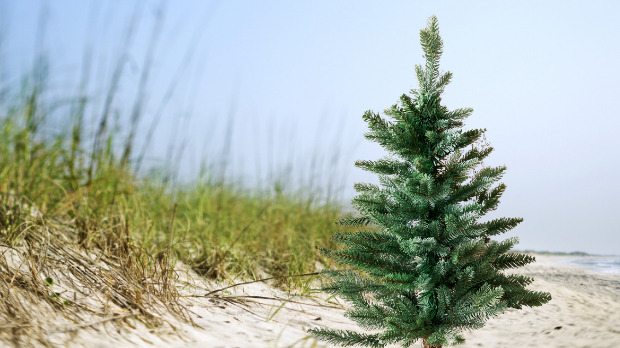To Tree, or Not to Tree

New Marine Extension Bulletin Takes a Look at History, Feasibility of Using Discarded Christmas Trees in Dune Stabilization

In the days following the holidays when it’s time to clear out all the decorations, Massachusetts residents often wonder what to do with their Christmas trees. In coastal areas of Massachusetts that often leads to questions about whether discarded trees can be used in dune stabilization.
A new marine extension bulletin from Woods Hole Sea Grant (WHSG) and Cape Cod Cooperative Extension (CCCE) takes a look at the practice through history, mechanics, and best management practices and comes to the conclusion that the answer, most likely, is no.
While used for many decades, within the last 20-30 years the practice has fallen out of favor locally due to the high potential to harm habitat and to make erosion worse if improperly sited, according to bulletin author Greg Berman, coastal processes specialist for WHSG/CCCE.
Placing discarded Christmas trees in the wrong place, or the wrong way, can cause harm to the dunes, beach, and the species that utilize them. Within dune and beach environments in Massachusetts, the local Conservation Commission must be contacted to conduct a regulatory review and permitting process before the placement of trees can occur.
Typically, Berman said, sand fence is a more appropriate choice, however Christmas trees can relatively cheaply and efficiently accumulate sand if installed properly in one of the rare locations in Massachusetts that is suitable for this technique. It’s local officials that know that answer best.
Click on the link for a PDF of “To Tree or Not to Tree: The use of discarded Christmas trees for dune stabilization in Massachusetts”.
- Dec. 2020
